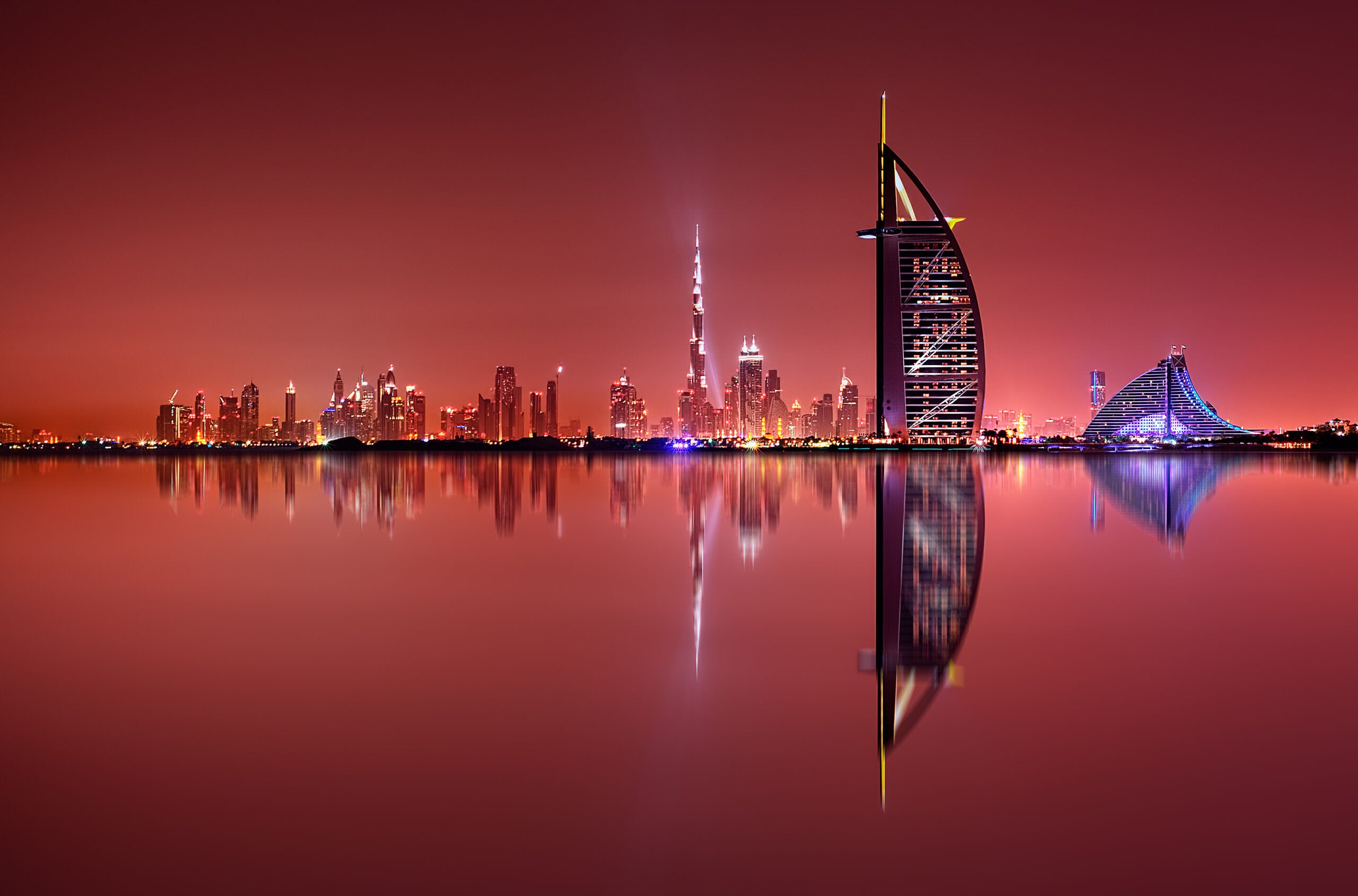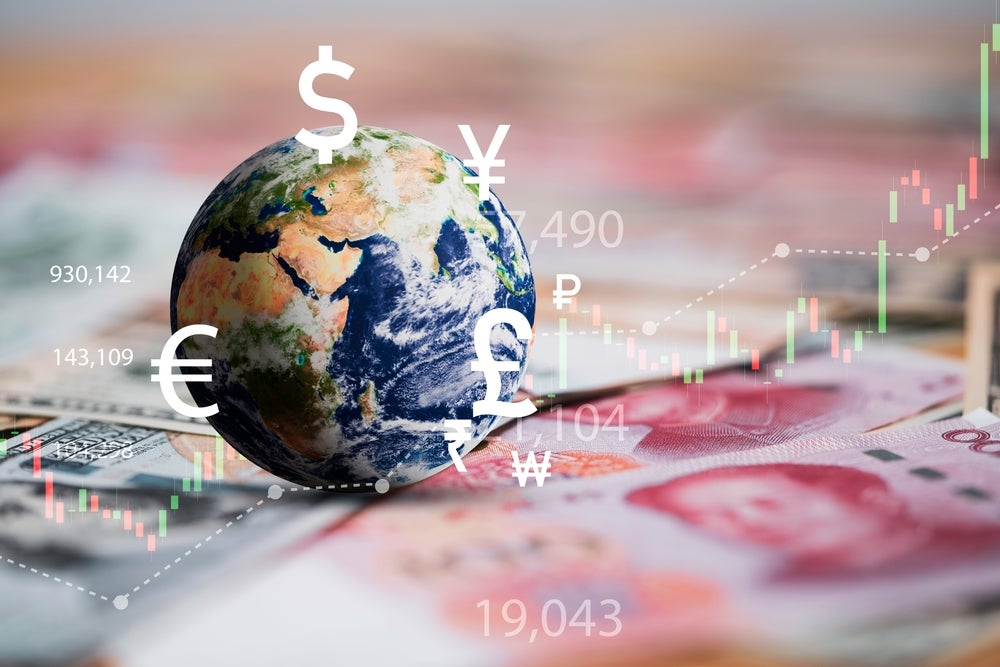
Dubai wants to become a cryptocurrency capital, but several challenges could keep the United Arab Emirates (UAE) city from achieving that goal. Detractors have warned that the Middle Eastern metropolis’ business friendly approach could leave investors at risk of falling victim to scammers, adding to the millions already lost to laptop-wielding larcenists.
Other obstacles on the emirate’s path to establish a digital asset nirvana include the growing competition from neighbouring states, the looming threat of crypto-based money laundering, and eye-watering skills shortages following a mass-exodus of foreign talent since the end of the pandemic. And we haven’t even mentioned the chaos caused by the collapse of crypto darling FTX, which has put the entire industry’s future in jeopardy.
Rather than buckling under the weight of the existential threats facing the industry, Dubai has gone on the offensive – a charm offensive, to be precise. It has introduced new laws to make the city more palatable for blockchain-based businesses, reassuring them that not only are their assets safe in the city, but they can also make a killing if they relocate to it. These efforts have paid off.
Back in 2021, there were already over 400 crypto business operating in Dubai, but Ahmed bin Sulayem, executive chairman and chief of the Dubai Multi Commodities Centre, has boasted that this figure could balloon to “well over” 1,000 by the end of 2022. He has reason to be bullish.
Dubai’s low-tax and business friendly regulatory landscape has already encouraged cryptocurrency exchanges like OKX, Blockchain.com and Binance to acquire licences to operate in the city. Bytbit even moved its global headquarters from Singapore to Dubai in March.
In August, PwC’s crypto head Henri Arslanian announced plans to depart the accountancy firm to set up a $75m digital asset fund called Nine Blocks Capital Management in Dubai. He cited the country’s crypto friendly regulations as a reason to set up the fund in Dubai.
Blockchain-based businesses in Dubai have also been at the receiving end of a $97m in capital raises so far this year, according to research from analyst firm GlobalData. That’s up from $14m injected into the industry in 2017.
Dubai is also no stranger to hosting cryptocurrency summits. In fact, it annually hosts hundreds of crypto-related events. In the past it has welcomed the likes of the artificial intelligence and blockchain summit AIBC, Crypto Expo Dubai, the World of Web3 Summit and the WOW Summit to the city.
Cryptocurrencies also featured heavily at the recent GITEX tech conference, which Verdict attended via a press trip organised by Dubai’s Department of Economy and Tourism. The message is clear: Dubai is open for blockchain-based businesses.
The UAE has echoed the sentiment. The nation has clamped down on crypto-based money laundering and made it clear that the country wants to be at the forefront of blockchain businesses. The UAE even issued non-fungible token (NFT) stamps in 2021 to commemorate the federation’s 50th National Day. Elsewhere, the UAE’s national airline, Emirates, announced in May that not only would it start to accept bitcoin as a payment method, but also roll out NFT collectibles.
The UAE in general and Dubai in particular are clearly dead set on transforming the desert state into a cryptocurrency Mecca. The question is if they can.
Why would Dubai even want to become a cryptocurrency capital?
However, one may want to start by asking a different question: why would Dubai even want to become a haven for crypto bros? After all, the industry has an awful reputation. The market is famously volatile. Tesla CEO and somewhat reluctant Twitter chief twit Elon Musk famously added $78bn to bitcoin’s value in June, 2021, with just a single tweet.
The industry is also home to a mob of shitcoins, memecoins and right-out scams like OneCoin – and that’s when the technology isn’t used by hackers to extort hefty ransoms from victims following illegal cyberattacks.
Moreover, the ongoing cryptocurrency winter would arguably put many would-be crypto investors off their appetite. The crash of the sector over the past 12 months has been brutal.
Cryptocurrency market capitalisation hit almost $3tn in 2021 and bitcoin reached an all-time high of more than $65,000, making crypto the best-performing asset class of the past decade, according to Gemini’s 2022 Global State of Crypto report.
It’s all gone downhill since then. So far in 2022, $2tn have been shaved off from the market’s total value. Bitcoin has plunged back to levels last seen back in 2020 and is currently hovering just above the $16,000 mark. Ether, the world’s second biggest cryptocurrency, has suffered a similar drop this year.
The mayhem has worsened with the collapse of industry leaders like Celcius and Terra. The latest crypto powerhouse to join them is FTX, which potentially left over one million people out of pocket.
With the absolute carnage across the sector, one may wonder why Dubai would want to become a cryptocurrency hub. The reason is that it is not just about bitcoin, ether or even the occasional NFT. In fact, it’s about oil. Or, to put it more accurately, the absence of crude.
The emirate is looking towards the future
A common misconception is that oil sits at the centre of Dubai’s economy. However, the city only has a fraction of neighbouring Abu Dhabi’s natural resources.
Due to this, the emirate has long been forced to diversify its economy. That’s the reason why the former fishing town evolved into a thriving trade port to then becoming a holiday hot spot for the super rich. For the same reason, it’s now trying to morph into a tech tour de force. Cryptocurrencies and their underlining technologies sit at the centre of this strategy.
“The Dubai Blockchain plan will provide economic opportunities to all business sectors in Dubai and cement Dubai’s status as a worldwide technology leader, in keeping with Digital Dubai’s objective to become a global leader in the smart economy, fuelling entrepreneurship and global competitiveness,” Hamed Taherdoost, professor at University Canada West, tells Verdict.
Things like the recurring industry events in the city and the impressive Museum of the Future all highlight Dubai’s aspirations to be a world leader of things like flying cars, the metaverse and autonomous vehicles. The aim is that this push will create over 40,000 new jobs by 2030.
“Dubai usually adopts new technology very fast,” Hamad Al Mansoori, the UAE chief of digital government, tells Verdict.
Betting on cryptocurrencies is also a way for Dubai to take pole position as the next generation of the internet, the so-called Web3, becomes a reality. It has even made the metaverse a cornerstone of its official policies.
Dubai officials are also keen to highlight how blockchain, the digital ledger technology underlining cryptocurrencies, could be used for than just speculative assets.
“Blockchain is attached with security,” Al Mansoori says, alluding to how the technology can be used to boost transparency in things like contracts and adminstration.
That is the reason to why, back in 2016, Dubai unveiled a plan to create a fully digitalised government by 2021. As part of that effort, Dubai formed the Global Blockchain Council. The is comprised by government bodies, banks and tech firms. Its goal was to implement the technology across the running of the city. Today, blockchain underlines everything from the education system to security, from transportation to health.
It is against this background that Dubai is now aggressively pursuing plans to attract even more crypto businesses. Part of that push has been made by overhauling the emirate’s virtual asset regulations.
Dubai paves the way with new cryptocurrency regulation
Crypto entrepreneurs have long enjoyed Dubai’s zero-corporate tax polices. They’ve also prospered from the fact that the city’s residents also pay 0% on all income of all forms, regardless of whether it was earned in the emirate or elsewhere. Blockchain bullions are treated just like any other property, meaning cryptocurrency traders are excused from paying taxes on any profits made from the digital dosh.
The emirate of Dubai further demonstrated this commitment to the virtual economy with landmark regulatory advances in March 2022, arguably to make the city more attractive for investors. The Regulation of Virtual Assets, on paper, provides a framework for businesses dealing with virtual assets such as cryptocurrencies and NFTs.
The new rules defined a virtual asset as a “digital representation of value which can be digitally traded or transferred or used as and exchange or payment tool of for investment purposes” and a virtual token as a “digital representation of a group of rights which can be issued and traded digitally through a virtual asset platform”. However, the law didn’t cover the Dubai International Finance Centre as the free zone had its own regulatory framework in place.
The law also laid out the framework for Dubai’s new Virtual Assets Regulatory Authority (VARA), a governmental watchdog dedicated to regulate the nascent industry, earlier this year. The regulator would be tasked with the enforcement of the law, including policing and penalising businesses breaking it, as well as issuing licences for exchanges.
The regulator had previously issued guidelines on marketing and advertising for virtual assets. VARA has recently been criticised for not releasing a comprehensive regulatory framework that companies can use to create or launch products, CoinDesk reported. However, officials assured the publication in early November that those guidelines would be in place before the end of the year.
The introduction of VARA and the new law stands in stark contrast to the more cautious approach seen in some Western regulators. Dubai hopes it can get a leg up over international would-be competitors by jumping headfirst into the water and opening the country for cryptocurrency companies.
“Based on the slow regulatory approach from legislators in traditional financial jurisdictions – [such as in the] US and UK – Dubai has a significant opportunity to become the global capital of a nascent Web3 financial industry,” Peter Curk, CEO of crypto exchange Iconomi, tells Verdict.
Capital raises in Dubai
Dubai’s overhaul of its crypto laws, free zones and tax regiment have already seen some results. Not only have prominent crypto exchanges flocked to the city, but so has growth capital. That is particularly impressive, considering that worldwide funding into blockchain projects has collapsed due to the cold winds of the crypto winter blowing across the globe.
Last year, the global industry secured over $51.7bn across 1,222 venture financing, equity offering, asset transaction and private equity deals, according to GlobalData. So far in 2022, the industry has secured just over $21.7bn across 1,224 deals.
The UAE has managed to come unscathed out of the blockchain bullion blizzard. The amount injected into blockchain projects in the country has surged from $42m to $97m between 2021 and 2022, according to GlobalData. Although, that is still only a fraction of the investment going into the industry, even in this year's bear market.
If Dubai is serious about becoming a cryptocurrency Mecca, it has its job cut out for it. However, it still has a range of challenges to overcome to achieve that goal.
Let's talk about fraud
Dubai must tackle three major challenges to ensure its future a global cryptocurrency hotbed: the risk of fraud, talent shortages and international competition. Let's take them in order.
Crypto scams have run rampant for years. Schemes like BitConnect and OneCoin have imploded over the years, with the former being labelled as a "textbook Ponzi scheme" by the US Department of Justice, and Europol putting OneCoin founder Ruja Ignatova on the most wanted list in May this year.
Dubai is not immune to crypto frauds. The head of the Digital Assets Crime Section at the Dubai Police, has reportedly said that there were hundreds of crypto scams in Dubai in the first half of 2021, that resulted in the loss of Dh80m ($21.7m) in total.
In March 2022, the global financial crime watchdog the Financial Action Task Force (FATF) included the UAE on a list of jurisdictions subject to increased monitoring, known as its "grey" list. Being put under increased monitoring means a nation must address "strategic deficiencies in their regimes to counter money laundering, terrorist financing and proliferation financing." As of October, the UAE is still on the grey list.
Some critics fear that Dubai's business friendly digital asset laws will further exacerbate the risk of people falling victim to virtual villains.
“Its laissez-faire approach is a problem, though, and we have clients facing seven-figure sterling losses from Dubai crypto schemes who can attest to that," Josh Chinn, co-founder of Wealth Recovery Solicitors, a niche law firm specialising in the recovery of assets lost to fraudulent cryptocurrency schemes, tells Verdict.
"I understand that the whole point of crypto was to be unregulated but, as recent events have shown, it needs some kind of government input if cryptocurrency is to maintain investors’ confidence and fulfil its ambitions to be considered a safe asset."
However, not everyone agrees with that picture.
"I don’t see a laissez faire attitude," Mehtap Önder, MENA CEO of forex and cryptocurrency liquidity provider GCEX, which expanded into Dubai in April, tells Verdict. "On the contrary, [VARA] is the world’s first independent regulator for virtual assets. Both transparency and trust are at the core of the strategy to grow Dubai as a hub and enable safe market adoption."
The war for talent
You need talent to build any type of innovative hotbed. However, staff shortages could scupper Dubai’s dreams to become a Promethean cryptocurrency powerhouse.
In a recent study, the Institute of Engineering and Technology warned that over nine out of 10 engineering-focused firms struggled to source talent in 2021. Some 54% experienced a skills shortage and 97% said they needed training to deliver their goals over the next five years.
The lack of talent worsened after the pandemic caused a brain drain in the region. Experts from recruitment company Hays suggest foreign workers left the region once Covid-19 restrictions lifted. Other recruiters have echoed that sentiment.
"Dubai has been working to diversify its economy for some time, and becoming a hub for up-and-coming technology – particularly fintech – is part of the strategy, but staffing issues are likely to slow down its progression," says Gareth El Mettouri, associate director of the Middle East at global recruiter Robert Half. "There is a global shortage of tech talent, particularly developers, creating astonishingly high levels of competition and it is proving difficult for UAE businesses to win out.
Dubai officials, such as Omar bin Sultan Al Olama, UAE minister of state for AI, have told Verdict that while there are definite challenges for the city to attract tech talent.
"[We’re] seeing a positive momentum," bin Sultan Al Olama recently told Verdict on the back of the country overhauled its visa rules in an effort to attract more than 100,000 coders.
However, El Mettaouri is skeptical about the success of the new 'golden visas', saying that international tech talent would be reluctant to reclocate "when they can do their job anywhere in the world" and because of the "recent instability in the sector".
"[Unsurprisingly,] relocating to work for a company that might go bust is not a comforting notion, particularly following the ups and downs of the pandemic," El Mettouri says. "The rapidly rising cost of living in Dubai, and cut-backs to some of the benefits that previously made living in the UAE so appealing, are also a drawback when tech talent can earn more and live more cheaply in other areas of the world.
"It comes back to three things: flexibility, security and salary. If crypto companies can offer those, they are much more likely to be able to secure the talent they need and meet their growth ambitions."
Competition from neighbours
Dubai's cryptocurrency strategy is, as pointed out earlier, part of the city's plans for the future. However, the city is hardly alone in wanting to prepare itself for the future.
"[Fellow] emirate Abu Dhabi, Bahrain, Egypt and Qatar all have major ambitions to grow their fintech muscles," Rohit Talwar, global futurist and foresight expert, tells Verdict. "The biggest challenge of all could come from Saudi Arabia - whose financial resources far exceed those of Dubai. The ambitious Neom development is already sucking in waves of top talent from around the world and that demand is only likely to accelerate."
The Middle East is one of the fastest growing cryptocurrency markets in the world, making up 7% of global trading volumes, according to blockchain analysis firm Chainalysis. About $25bn worth of cryptocurrency transactions have been funnelled through the UAE every year, according to CNBC. This figure has increased 500% between July 2020 and June 2021, according to a report from PwC. Regionally, the UAE ranks third by volume, behind Turkey which had $132bn in transactions volumes and close to Lebanon at $26bn.
Bahrain is actively competing with the UAE, and Dubai, to become a cryptocurrency hotbed. However, it's unclear how much of a threat Bahrain is, given that GlobalData estimates that just over $9m have been injected into blockchain projects in the nation since 2019. Similarly, ventures in Qatar, the host of the FIFA 2022 World Cup that has been bashed for its treatment of the LGBTQ community and its treatment of immigrant workers, have only raised about $1m in capital raises, according to GlobalData.
In many ways, Dubai is clearly leading the pack in terms of becoming a cryptocurrency capital of the world, betting that it will be a way to further cement its reputation as an innovative tech hotbed. Only the future will tell if the gamble will pay off.
GlobalData is the parent company of Verdict and its sister publications.






